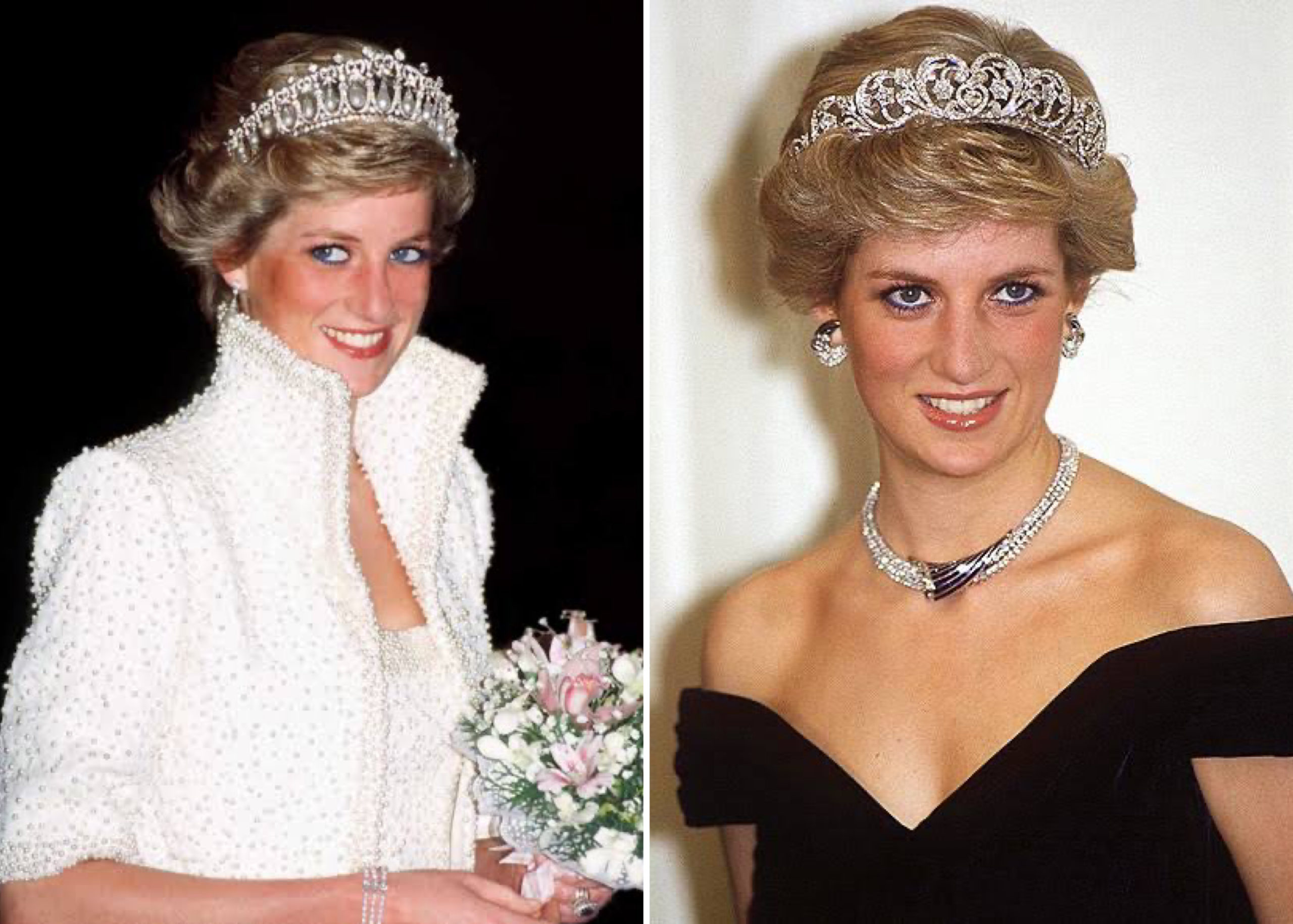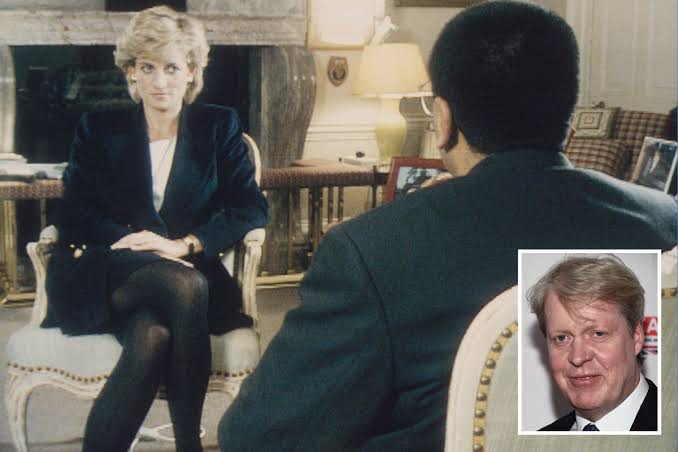Princess Diana’s Brother Says 1995 Interview Contributed To Her Death
 Princess Diana’s brother, Charles Spencer has blamed deceptive practices used to secure an explosive TV interview about her troubled marriage to Prince Charles for contributing to her death nearly two years later.
Princess Diana’s brother, Charles Spencer has blamed deceptive practices used to secure an explosive TV interview about her troubled marriage to Prince Charles for contributing to her death nearly two years later.
Spencer’s comments on Thursday came as an independent investigation concluded journalist Martin Bashir tricked him using falsified documents into introducing Bashir to Diana, to arrange sensational 1995 BBC interview.
Retired senior judge John Dyson’s report said Bashir commissioned faked bank statements that falsely suggested some of her closest aides were being paid by the security services to keep tabs on her.
Read Also: Prince William And Prince Henry Commission Memorial Statue For Late, Princess Diana
Bashir then showed them to Spencer in a succesful bid to convince him to arrange a meeting between himself and Diana and earn her trust, eventually securing the landmark sit-down.
Dyson said he was “satisfied” that Bashir showed fake bank statements “so as to deceive Spencer and induce him to arrange the meeting with Princess Diana”.
The judge added;
By behaving as described… Mr Bashir acted inappropriately and in serious breach” of the corporation’s own editorial guidelines on “straight dealing”..
In a scathing response to the findings, Spencer said he “draws a line” connecting the interview to his sister’s August 1997 death.
Speaking with BBC in an interview, Spencer expressed;
The irony is that I met Martin Bashir on the 31st of August 1995 because exactly two years later she died, and I do draw a line between the two events. She didn’t know who to trust and in the end, when she died two years later, she was without any form of real protection.
Questions have long been asked about how Bashir convinced Diana to talk on the BBC’s flagship “Panorama” programme, which was watched by a record 22.8 million people and won a string of television awards.
In it, she famously said “there were three people” in her marriage — her, Charles and his long-time mistress and now wife, Camilla Parker-Bowles — and also admitted adultery.
Bashir, now 58, was little-known at the time but went on to have a high-profile career on US television networks, and interviewed stars such as Michael Jackson.
He returned to work for the corporation as religion editor until he stepped down just last week, citing ill health, hours before Dyson’s report was submitted to BBC bosses.
A 1996 internal inquiry by future BBC chief, Tony Hall and another senior figure, Anne Sloman, cleared Bashir of wrong-doing.
However, Dyson called that probe “flawed and woefully ineffective”.
In particular, it did not ask Spencer for his version of events, Dyson noted, lambasting it for failing to scrutinise Bashir’s actions properly.
He wrote;
If they had been able to test Mr Bashir’s account… it is very unlikely that they would have believed him and concluded that he was an ‘honest and an honourable man’.
Hall, now chair of the board of trustees at Britain’s National Gallery, admitted that the probe “fell well short of what was required”, and said he was “wrong to give Martin Bashir the benefit of the doubt”.
BBC director-general Tim Davie said the corporation accepted Dyson’s findings completely, and offered a “full and unconditional apology”.
The broadcaster also said it was handing back the awards the programme won for the interview.
Bashir apologised, saying the faking of the bank statements was “a stupid thing do and was an action I deeply regret”.
However, he maintained it had “no bearing whatsoever on the personal choice by Princess Diana to take part”, and he was still “immensely proud” of the interview.
Davie equally said the princess was “keen on the idea of an interview with the BBC”. Her estranged husband had spoken to commercial channel ITV in 1994, and also admitted adultery.
However, he added;
It is clear that the process for securing the interview fell far short of what audiences have a right to expect. We are very sorry for this.
“The BBC should have made greater effort to get to the bottom of what happened at the time and been more transparent about what it knew,” Davie said, noting it had better procedures in place now.
On his part, John Birt, director-general of the corporation at the time of the interview, said in a statement: “We now know that the BBC harboured a rogue reporter”.
Diana and Charles formally divorced in 1996. She died at 36 in a high-speed car crash while being chased by paparazzi photographers in Paris the following year. Charles married Camilla in 2005.
Her friend, Simone Simmons, told The Sun that the interview had “destroyed her psychologically” and “made her paranoid”.
Via AFP.

